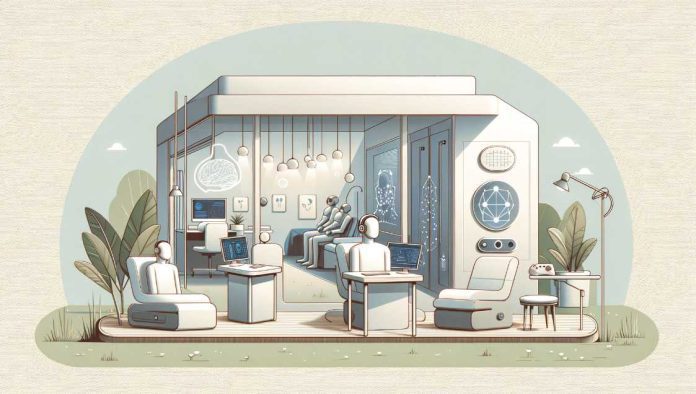The field of mental health care is rapidly evolving as technology begins to play an increasingly important role, offering new and innovative ways to support individuals with mental health conditions. In this article, we will take a closer look at some of the latest trends and advancements in the area of mental health care.
Telehealth
Telehealth offers patients greater flexibility and access to mental health care, enabling them to receive therapy, counseling, and medication management services via video conferencing or other remote communication technologies. This has the potential to improve access to mental health care, particularly for individuals who have difficulty accessing traditional in-person care, improving patient outcomes.
Whether it’s virtual therapy sessions, online support groups, or medication management consultations, telehealth holds many beneficial applications in the area of mental health.
Mental health professionals looking to expand their expertise may benefit from obtaining EMDR certification. This not only broadens the scope of mental health services they provide but also equips them to offer specialized trauma-based care to their patients.
Mobile Applications
Mobile applications have also become an important tool in mental health care and can be used to provide patients with facilities such as self-help tools, symptom tracking, and virtual therapy sessions. Some apps also incorporate artificial intelligence and machine learning to personalize treatment plans and provide real-time support to patients. With the increasing use of smartphones and other mobile devices, mobile applications have the potential to reach larger and more diverse groups of people with mental health conditions.
Virtual Reality
Virtual reality (VR) is also being explored for its potential in mental health care. This technology can be used to simulate challenging situations or environments, such as public speaking or exposure to phobias, to help patients build coping skills and reduce anxiety. VR has also been used to treat post-traumatic stress disorder (PTSD) by recreating traumatic events in a controlled environment and allowing patients to process and manage their emotions in a safe and supportive setting.
Artificial Intelligence and Machine Learning
Artificial intelligence and machine learning are being used in mental health care to provide personalized treatment plans and improve patient outcomes. These technologies can be used to analyze patient data, such as symptom severity and medication history, and provide treatment recommendations based on that data. They can also be used to predict relapse and identify early warning signs of mental health conditions, allowing for early intervention and prevention.
Digital Therapeutics
Digital therapeutics is another promising area in mental health care that provides evidence-based interventions through digital platforms like mobile apps or computer programs. Digital therapeutics can be customized to offer treatment based on the individual needs of specific patients and are easily accessible, allowing patients to follow their treatment schedule in the privacy of their own homes. In this way, digital therapeutics can help address the stigma associated with traditional therapies.
Digital therapeutics have been used to treat various mental health conditions, including depression, anxiety, and substance use disorders, making them a valuable addition to traditional treatment methods.
The role of technology in mental health is rapidly evolving, offering greater support to individuals with mental health conditions by making mental health care more accessible, personalized, and effective. As technology continues to advance, it is likely that we will see even more exciting developments in the field of mental health care.

Hi, I do tgink this is a geat blog. I stumbledupon itt 😉 I may
refurn one aain since I bookmarked it. Moneyy and freedom is the beat
way to change, may you be rich annd coontinue to help others.others.